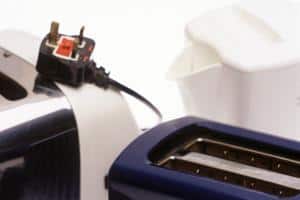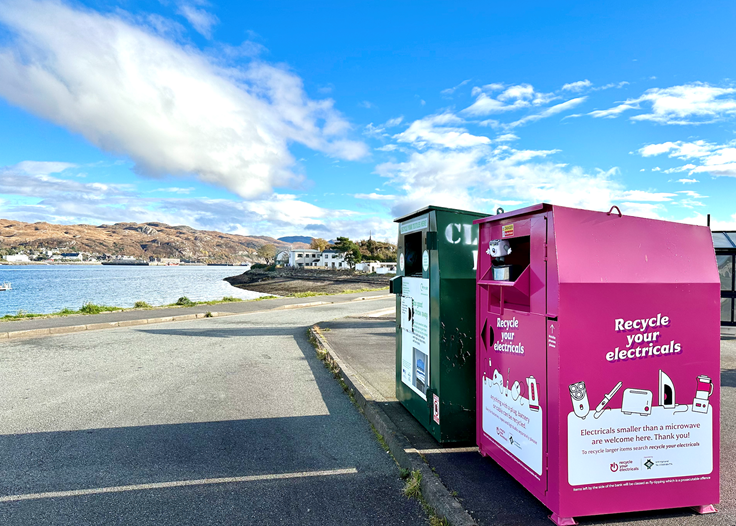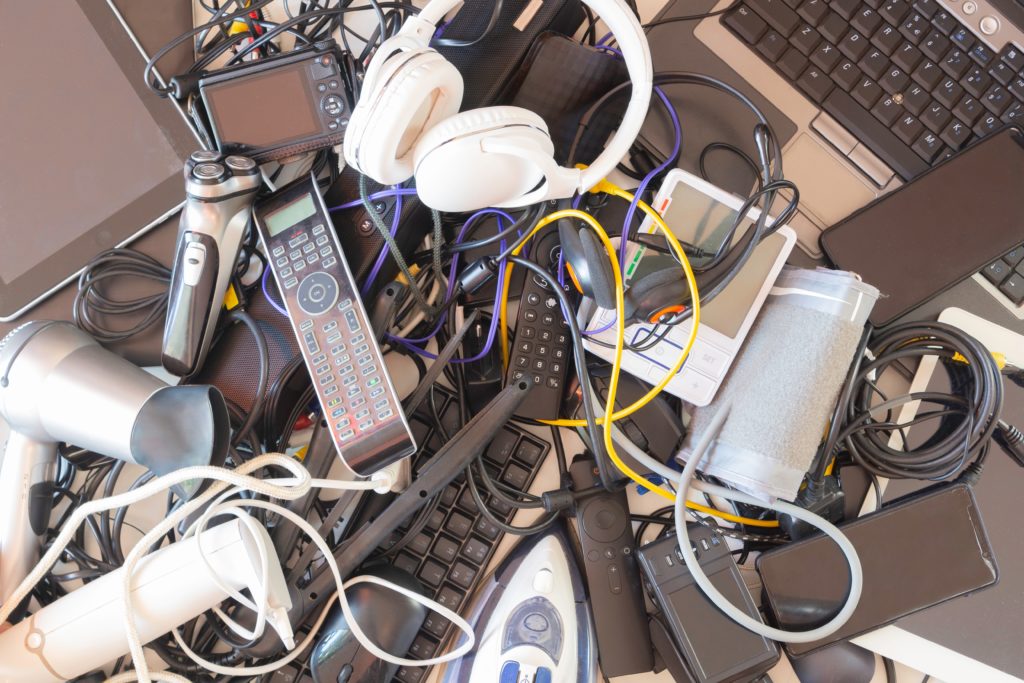The waste electrical and electronic equipment (WEEE) sector has reacted largely positively to changes to the WEEE directive, approved by MEPs in Strasbourg yesterday (January 19).

The changes will be enshrined in EU law once approved by the European Council. They include the adoption of staged targets to recycle WEEE equivalent to 45% of the weight that has been placed onto the market in 2016, which will rise to 65% in 2019 (see letsrecycle.com story).
The Department for Business, Innovation & Skills (BIS), the government department responsible for overseeing the UKs WEEE recycling system has welcomed the results of the WEEE Recast, revealing that government would begin looking at new legislation shortly.
A BIS spokesperson said: The outcome is a welcome result. It stretches the environmental objectives of the Directive whilst avoiding unnecessary burdens, and allows sufficient time for member states to respond to the challenge.
The UK government will consult later in the year on necessary amendments to the UK WEEE regulations. We will use that opportunity to consider other improvements we should make to the UK WEEE system that are good for business.
“It looks at this stage like there has been a sensible compromise but the devil is in the detail.”
Duncan Simpson, Valpak
Compliance
Commenting on the agreement, Duncan Simpson, director of sales and marketing at compliance scheme Valpak, said: We are very pleased that it has been finalised as we didnt want it to go to the conciliation process. It looks at this stage like there has been a sensible compromise but the devil is in the detail and we are keen to work with government, our customers and other industry stakeholders to come up with a workable solution over the next two years so that we can build on the success of the WEEE system to date.
Other figures from the WEEE compliance industry have echoed these views, including Dr Philip Morton, chief executive of the Repic producer compliance scheme. He said: The changes to the European WEEE Directive as approved by the European Parliament yesterday signify a positive step forward for the WEEE systems across Europe.
The updated Directive takes a more sensible approach to collection targets and the goals introduced will ensure that each Member State continues to move forward. These targets are quite rightly stretching, and it will only be possible for us to reach them if we ensure that all WEEE is captured and counted in the official system.
Dr Morton went on to argue that the UK should review its WEEE system in light of the first few years of its implementation.
Targets

“The changes signifya positive step forward for the WEEE systems across Europe.”
Dr Philip Morton, Repic
The outcome of the Recast was also welcomed by Jeff Weeks, head of WEEE consultancy WE&E Consulting, who told letsrecycle.com that he felt the EUs adoption of staged targets, was the sensible way forward and claimed that the UK is more than capable of meeting the targets that have been set out.
He said: I do not see why the targets cant be met. The UK is doing very well at the moment and if the powers-that-be can do more to crack down on some of the WEEE that is leaking out of the system, that will be positive.
Mr Weeks also commented that he saw new requirements for retailers to organise the drop-off points for small WEEE as an interesting development with possibly positive implications for the WEEE sector.
Retailers
Under the proposals, electronics retailers with a shop space of more than 400 sq metres will have to accept small WEEE from consumers at no cost and ensure that it enters the WEEE recycling and reuse system. These developments have been welcomed by the British Retail Consortium, the trade body representing the retail sector in the UK, who described the new measures as a sensible way forward and praised the decision not to include smaller retailers in the legislation.
Following yesterdays vote, BRC head of environment Bob Gordon said: We support the decision to place responsibility only on stores to sell large volumes of electronics such as specialist retailers and larger out of town stores. It wouldnt have been appropriate to place a requirement on smaller retailers who dont have the space to collect and store waste electronics in store.
Reuse
Despite reaction to the recast being largely positive, there has been some criticism of what are seen as low targets set for the reuse of WEEE items. In a statement, the UKs Reuse and Recycling EU Social Enterprises network (RREUSE) claims that the course set out in the WEEE recast could hamper WEEE reuse, saying that the decision not to include a separate prepare for reuse target for the reuse of waste electricals could jeopardise future investment.
In its statement, RREUSE said: The measures agreed will severely hinder reuse rates of WEEE in Europe and not exploit the clear benefits and potential of reuse in Europe. These decisions were taken regardless of studies showing that one in two Europeans would be happy to purchase second hand electronic equipment and that reusing appliances could not only create up to 200 jobs per 1,000 tonnes of electronics, but as well help achieve the resource efficiency needs of Europe that the European Commission is currently promoting.










Subscribe for free